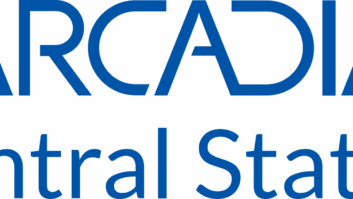

Up Against It
Economic times are tough. What happens when a prominent corporate client calls off a lucrative project?
Credit: Courtesy Video Systems of the Carolinas
If you watch the news, then it’s no surprise the economy, particularly the financial industry, is in a tough spot. And despite indications the commercial AV industry is healthy (see Marketwatch, next page), some of this economic malaise is bound to rub off.
Bruce Banbury, president of Video Systems of the Carolinas in Charlotte, N.C., has a front row seat to the banking disaster. For the past 12 years, his design/build and custom integration firm enjoyed a growing relationship with Wachovia Corp.
“In downtown Charlotte, Bank of America and Wachovia headquarters are practically across the street from one another,” he says. “It causes panic when two big giants of the banking industry are not doing well. Charlotte has gone into a deep freeze. Most projects are in a wait-and-see mode.”
Wachovia, currently in the process of a takeover by Wells-Fargo, had several high-profile projects in the pipeline when its fortunes went south. Most notable was a 48-story office tower and 42-story condominium project located on one city block. The $880 million project was integrated into the Charlotte Arts plan, with space for museums and a cultural center. Banbury’s firm was slated to work on both the condo and office tower, but when his team showed up for the install, they received a shock.
“Without any warning, they stopped the condo project on the Tuesday after Labor Day,” Banbury recounts. “My install team showed up with $67,000 worth of AV equipment–LCD TVs, control system touch panels, a fully integrated rack. They were stopped at the sales center by a security guard. No work was allowed to continue at the site.”
For Banbury’s $67,000 order, the bank paid for the infrastructure that was already laid and a reasonable restocking fee for the equipment.
In the office tower, Video Systems of the Carolinas was slated to handle the AV systems for the top two executive floors. But Childers Klein Property Management, the office tower’s owner, hired a new consultant to drive the project once Wachovia pulled out. Now to complete the tower, the consultant is conducting a reverse auction for all AV work in the $5-$7 million budget range.
The reverse auction is a model that started in the IT industry. “The AV consultant was hired and an RFP was issued,” he says. “Everyone can see each other’s bids and prices via an FTP site. It’s an open bid. Each part of the process is separated, and a bid must be placed for each one–equipment, drawings, documentation, integration, etc.”
Banbury says the new process takes the relationship out of AV integration. “No one can do the entire job at single-digit margins,” he adds. “You may think you can low bid on equipment and make it up on the integration, but in this model, someone else may have the integration. And to bid on an equipment list without seeing the drawings doesn’t make sense.”
Economists have warned of a nationwide “ripple effect” where losses in investments, housing, and jobs mean consumers pull back their spending. Banbury sees this happening in his community but also sees signs of trouble for the pro AV community. “Since our projects have a relatively long lead time [six to 12 months], our numbers are still good this year. There will be a ripple effect in the spring from many of the failures this fall,” he says. “We’re also seeing a trend of percentage reductions with projects that are already in the pipeline. At this point, I just don’t see how 2009 can be a growth year.”
That sentiment has been echoed by his fellow members in USAV Group, a 26-member buying group of AV firms from across the country, Banbury says.
Asked if there was anything he could have done differently to avoid his losses with Wachovia, Banbury explains, “We had a 12-year relationship. During that time we handled approximately 90 percent of all AV work, including 55 conference rooms. The office building and condominium projects have been on the books for months. I’ve been in the business for 18 years and have never seen a climate like this one; I don’t think there is anything I could have done differently.”
Going forward, his company has put new measures in place, such as enforcing payment terms more stringently, requiring deposits from all clients, and taking a critical look at all large projects. “Wachovia has dropped all maintenance contracts and gone to time and materials,” he says. “We couldn’t have been any smarter or better in this situation. We did what we were supposed to do–service our client and grow with them over the long term.”
Losing Wachovia does not mean Video Systems of the Carolinas will go out of business. “I did not leverage the success of my business on the actions of a large client,” Banbury says. “But people overreact when big things happen and the downfall of a large business like Wachovia can have a crushing effect.”
Five Things to Do if You Think a Project Is on the Ropes
1. Do due diligence. If your client is a public company, its financial statements and filings with the Securities and Exchange Commission (SEC) are public information. Check them. And search for industry analyst reports for insights into the company’s long-term prospects.
2. Talk to other business owners. If your client is privately owned, it may be difficult to gauge its financial health. Talk to other business owners in your community who service the client. If the client recently let go its cleaning company or isn’t ordering its office supplies in a timely manner, that could be an indication of cost-cutting.
3. Talk to other integrators. Get in touch with AV integrators not only in your region but also across the country. What may start as a trend in one part of the country could spread to your community. A dialogue with fellow integrators can get you thinking on how you’d react in a tough situation.
4. Focus on client service. Keep in close contact with your client. The client will appreciate the effort and you may be able to discern what’s happening just by the tone of his/her voice.
5. Review your business and financial policies. You may be operating under policies and procedures that were put in place years ago. Review how you’re conducting your business and if you’re protecting yourself in this challenging economic climate.
Linda Seid Frembes is a freelance AV writer and frequent contributor to Pro AV.





